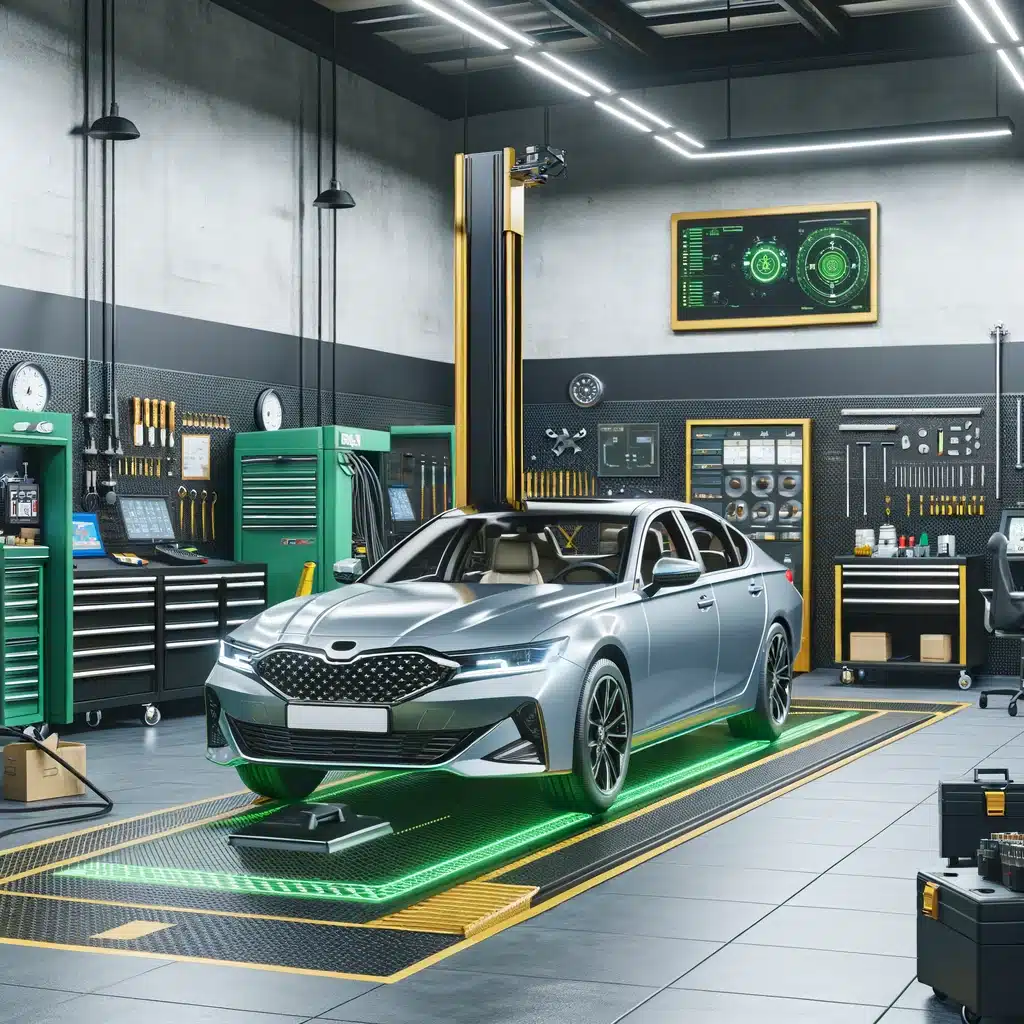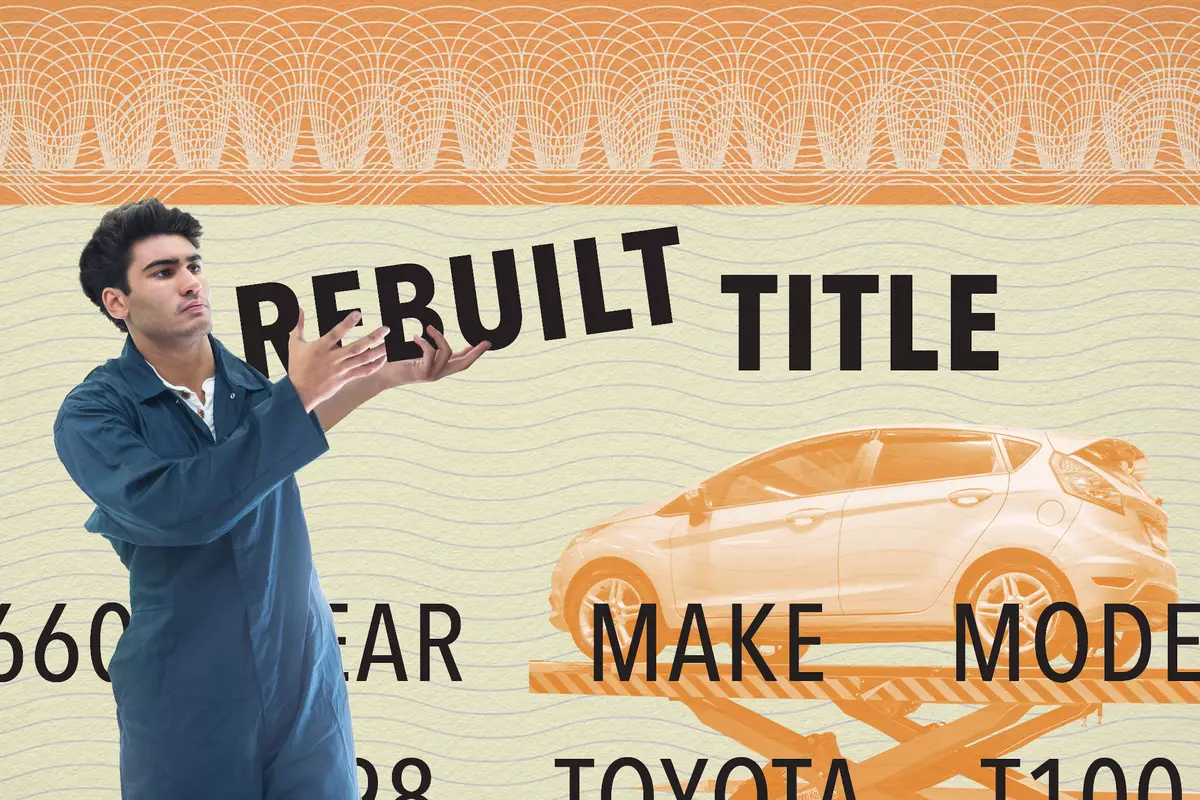Is Buying a Car with a Rebuilt Title Worth It? When it comes to purchasing a used car, many buyers come across vehicles with rebuilt titles. These cars, often priced significantly lower than those with clean titles, can seem like a bargain. However, the term “rebuilt title” raises several questions and concerns. Is buying a car with a rebuilt title worth it? What are the risks and rewards of such a purchase?
This article will explore everything you need to know about buying a car with a rebuilt title, including the pros and cons, the process of obtaining a rebuilt title, and essential considerations to help you make an informed decision. We’ll also provide answers to common questions in the FAQ section at the end.
Contents
What is a Rebuilt Title?
Before diving into whether buying a car with a rebuilt title is worth it, it’s important to understand what a rebuilt title actually means.
A vehicle receives a rebuilt title when it was previously declared a total loss by an insurance company due to significant damage—usually from a collision, flood, or fire. After being declared a total loss, the car is often sold to a salvage yard, where it may be repaired and restored to working condition. Once the repairs are made, the vehicle undergoes an inspection by state authorities, and if it passes safety and functionality tests, it is issued a rebuilt title.
Unlike cars with clean titles, which have never experienced major damage, rebuilt title cars come with a history of severe issues. This history is why they are typically sold for much less than comparable vehicles with clean titles. While the lower price tag may be appealing, it’s crucial to weigh the risks and benefits before deciding whether buying a car with a rebuilt title is worth it.

The Pros of Buying a Car with a Rebuilt Title
There are several potential benefits to buying a rebuilt title vehicle, especially for buyers who are working with a tight budget or are open to taking calculated risks. Here are some of the pros to consider:
1. Lower Purchase Price
The most significant advantage of buying a car with a rebuilt title is the cost. Vehicles with rebuilt titles are often priced 20% to 50% lower than similar cars with clean titles. This lower price can make once-unaffordable cars accessible to buyers who might not otherwise be able to purchase a specific make or model.
For example, if you’ve had your eye on a particular luxury car or a newer model, a rebuilt title vehicle could allow you to get the features and style you want at a fraction of the price.
2. Potential for Good Quality Repairs
Not all rebuilt title cars are lemons. In some cases, the repairs made to the vehicle can be of high quality, especially if the work was done by a reputable mechanic or body shop. A car that was previously totaled may now be in excellent working condition, with no visible or functional issues. Some rebuilt title cars can provide years of reliable use, making them a smart buy for the right person.
3. Reduced Insurance Costs
While insurance companies are often hesitant to provide full coverage for rebuilt title vehicles, they may offer basic liability coverage at a reduced cost. If you’re willing to forgo comprehensive coverage and stick with liability insurance, you could save on insurance premiums. This can further add to the affordability of owning a rebuilt title car.
4. Potential Resale Value
Though it’s true that rebuilt title cars depreciate faster than clean title cars, if you purchase a rebuilt title vehicle at a significant discount, you may still be able to sell it down the line without losing too much money. Some buyers are willing to take on rebuilt title cars if they are properly informed and see value in the reduced price.
The Cons of Buying a Car with a Rebuilt Title
While the potential cost savings of a rebuilt title vehicle can be tempting, there are several downsides to consider. Here are the most significant drawbacks:
1. Hidden or Ongoing Issues
A rebuilt title signals that the car has experienced major damage at some point, and even if the repairs appear solid, there is no guarantee that problems won’t emerge later on. Cars that have been involved in serious accidents or floods may have lingering issues, such as electrical system failures, alignment problems, or rust. These issues may not be immediately noticeable but can result in costly repairs in the future.
For example, flood-damaged cars may seem fine at first but could develop electrical failures or mold over time, making them unreliable or unsafe.
2. Difficulty Obtaining Insurance
One of the biggest challenges of owning a rebuilt title car is securing insurance. Many insurance companies either refuse to offer full coverage for rebuilt title vehicles or charge much higher premiums for comprehensive and collision coverage. This is because rebuilt title cars are considered a higher risk for insurers.
In some cases, you may only be able to obtain liability coverage, which means you won’t be covered for damages to your own vehicle in the event of an accident. If you plan on getting full coverage, you’ll need to shop around and may face higher costs.
3. Lower Resale Value
Rebuilt title vehicles tend to depreciate faster and have lower resale values compared to cars with clean titles. If you plan on selling the car in the future, you may struggle to find a buyer willing to take on a car with a questionable history. Even if the vehicle runs well, the stigma associated with rebuilt titles can make it harder to sell.
4. Difficulty Obtaining Financing
Many lenders are wary of providing loans for rebuilt title cars. Since these vehicles have a higher risk of mechanical failure, lenders see them as risky investments. If you plan to finance your vehicle purchase, you may face higher interest rates or outright rejection from some lenders. This can make buying a rebuilt title car less feasible unless you are paying in cash.
5. Limited Warranty or No Warranty
Cars with rebuilt titles typically come with limited or no warranty coverage. This means that if anything goes wrong, you’ll be responsible for paying for repairs out of pocket. Unlike cars with clean titles, which often come with manufacturer or extended warranties, rebuilt title cars offer little to no protection for buyers.

Key Considerations Before Buying a Car with a Rebuilt Title
If you’re still considering purchasing a car with a rebuilt title, it’s important to approach the process with caution. Here are some essential steps to take before making a decision:
1. Get a Comprehensive Vehicle History Report
Before buying a rebuilt title car, request a full vehicle history report from a service like Carfax or AutoCheck. This report will give you insight into the vehicle’s past, including the nature of the damage it sustained and the repairs that were made. This can help you determine whether the car’s issues were minor or severe and whether the repairs were sufficient.
2. Have the Car Inspected by a Trusted Mechanic
Never buy a rebuilt title vehicle without having it thoroughly inspected by a trusted mechanic. An experienced mechanic can assess the quality of the repairs and check for any hidden or ongoing problems. They may also be able to estimate how long the car is likely to remain in good condition.
3. Review State Laws Regarding Rebuilt Titles
Each state has its own regulations regarding rebuilt titles, and some states have stricter requirements than others. Make sure you’re familiar with your state’s laws and ensure that the car has passed all necessary inspections. This will also help you avoid legal issues if you decide to sell the car in the future.
4. Consider the Long-Term Costs
While rebuilt title cars are cheaper upfront, they may come with higher long-term costs due to insurance, repairs, and depreciation. Make sure to budget for these potential expenses and consider whether the overall savings are worth the potential headaches.
FAQ
Can I finance a car with a rebuilt title?
Yes, it’s possible to finance a rebuilt title car, but it can be more challenging. Some lenders are hesitant to offer loans for rebuilt title vehicles due to their decreased value and potential for hidden damage. If financing is available, you may face higher interest rates or stricter terms.
Is it harder to sell a car with a rebuilt title?
Yes, selling a car with a rebuilt title can be more difficult. Many buyers are wary of vehicles with significant damage in their history, even if they’ve been fully repaired. You may have to lower your asking price to attract potential buyers.
Will insurance cost more for a rebuilt title car?
Insurance for rebuilt title cars can be more expensive, especially if you’re seeking comprehensive or collision coverage. Some insurance companies may offer only limited coverage, or they may charge higher premiums due to the car’s past damage
What’s the difference between a salvage title and a rebuilt title?
A salvage title is issued to a vehicle that has been declared a total loss by an insurance company but has not been repaired. A rebuilt title is issued after the car has been repaired and passed a safety inspection, certifying it as roadworthy.
How can I check the quality of repairs on a rebuilt title car?
Before buying, have the car inspected by a trusted mechanic to check for signs of poor repair work or hidden damage. You can also request repair records and research the reputation of the shop that performed the repairs to ensure the work was done correctly.
Final Verdict:
So, is buying a car with a rebuilt title worth it? The answer depends on your personal circumstances and tolerance for risk. For some buyers, the lower purchase price of a rebuilt title vehicle can make it an attractive option, especially if they’re willing to take on the potential challenges of insurance, repairs, and resale value.
However, it’s essential to approach the purchase with caution. Ensure you have all the necessary information about the car’s history, repairs, and future maintenance needs before making a decision. If you’re willing to invest in a thorough inspection and accept the possibility of future issues, a rebuilt title car could offer significant savings.
On the other hand, if you prioritize reliability, ease of insurance, and long-term value, it may be worth spending a bit more to buy a car with a clean title.
See also Is buying a tesla worth it?

Hello, I am Henrik Garrison from El Dorado, California. I love gaming and exploring new features. When I couldn’t find clear advice online about buying certain game features, I decided to start a blog to help people decide whether to buy games, products, or services.

